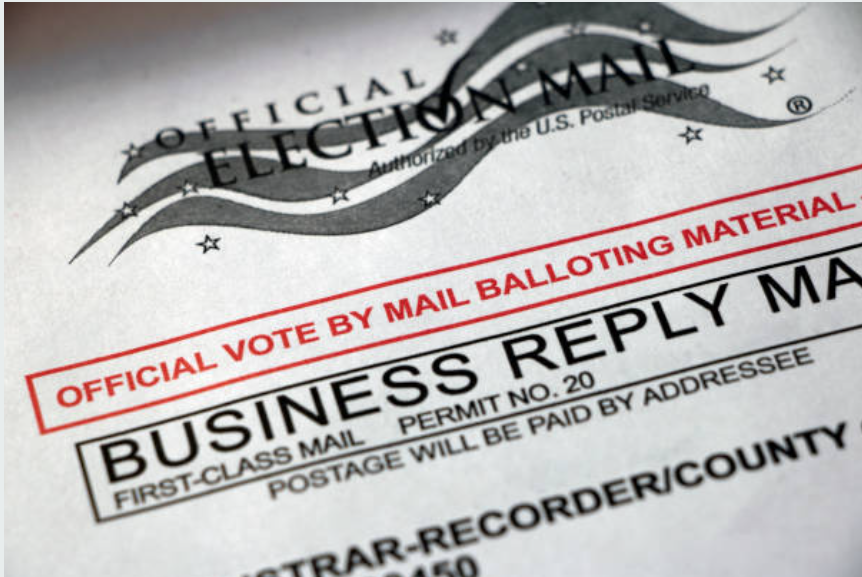
By: NICOLAS FIERRO
Salina Post
The Kansas Legislature have approved a bill that would end the three-day grace period for mail-in ballots to be accepted, three days after an election.
Back in 2017, the Kansas Legislature approved a three-day grace period for mail-in ballots that were sent before Election Day and to be received by a local county office 3 days after the election.
However, earlier this year during a legislative session, the Legislature passed Senate Bill 4 (SB4) to eliminate the three-day grace period.
According to Saline County House Rep. Clarke Sanders, the new law that will come into effect January 1, 2026 will be for anyone who votes by mail are to submit their ballots at an election office by 7:00 pm on Election Day.
Any ballots received after that, will not be counted.
Sanders added the leading factor of why SB4 was approved.
“Anytime you have ballots lingering, there is greater possibility of fraud,” he said. “This makes it fair and the same for everybody.”
According to Sanders, the mail-in ballots that come in after the three-day grace period do not necessarily change the results of the election significantly.
“There is not going to be that many ballots that come in (after the election). Generally speaking, the margins are wide enough that the number of ballots that come in after Election Day, probably are not going to affect the results of the election of who is first, second and third place,” said Sanders.
Back on March of this year, Governor Laura Kelly vetoed SB4.
According to a press release from the Governor’s office, her reason was to “ensure that all Kansans had their votes counted, no matter where they lived.”
“Not only will removing the three-day grace period for mail ballots disenfranchise thousands of Kansas voters, but it also shows a lack of understanding of our elections in Kansas,” said Gov. Kelly. "Implementing this will create confusion among county election officials, who will have to update policies and procedures on handling of mail ballots in a higher turnout election year.”
The Legislature however, overrode the veto.
Sanders stated three Kansas organizations (Kansas Appleseed, Loud Light and Disability Rights Center of Kansas) have sued the legislature over concerns that SB4 is “unconstitutional.”
“At some point there has to be deadline,” he said. "We in the legislature thought that the deadline ought to be consistent and the ballots be held to the same standard, as the ballots that are casted the day of the election. The standard needs to be the same.”
Delays of mail-in ballots are also a concern with SB4.
However, Sanders stated these delays can be avoided by voters filing a provisional ballot.
Provisional voting was introduced in Kansas back in 1996, which allows voters the opportunity to vote in the event questions arise on their eligibility.
According to the provisional voting guide, the reasons where an individual may be provided with a provisional ballot include:
- Failure to provide photographic ID
- Address change
- Name change
- Already issued a ballot
For this case, Sanders stated people can fill in a provisional ballot in the event and individual’s mail-in ballot does not arrive at their local election office after they have called to check the status.
“We cannot determine if your mail-in ballot is going to be delayed, but if it is then you need figure out a way to get down to the election office and cast a provisional ballot,” said Sanders. “Now if in the meanwhile, your ballot arrives then your provisional ballot is thrown out and the original ballot you casted by mail would be counted.”
Kansas Rep. for the 41st District and Chair for the Elections Committee, Pat Proctor (who is currently running for Secretary of State), brought forward SB4.





